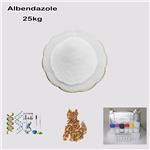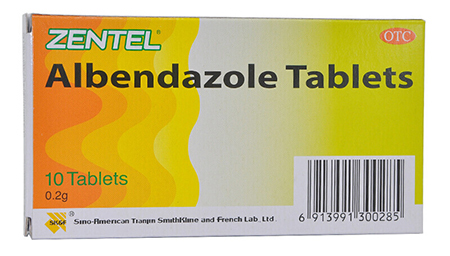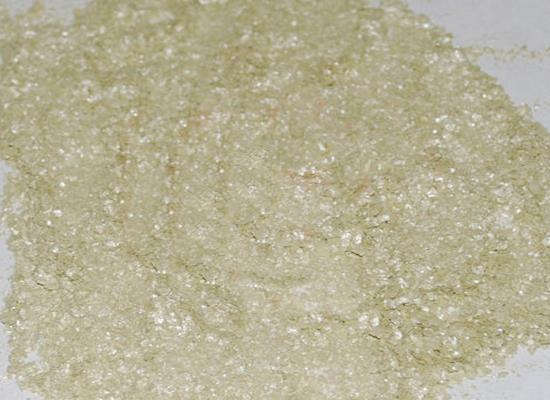The Mechanism of Action and Side Effects of Albendazole
Description
Albendazole (ABZ), with the chemical name methyl 5-[propylthio]benzimidazole-2-carbamate), belongs to the benzimidazole family of drugs. Amedra Pharmaceuticals first marketed this compound under the brand name ALBENZA. ABZ is a safe and effective antihelmintic drug (400 mg dose) but has significant antitumor activity in hepatocellular cancer[1].

albendazole hydrochloride
According to the Biopharmaceutics Classification System (BCS), ABZ is a class II drug of low solubility (9 mg L−1) and high permeability (log P 2.54), representing a dose number of 160 (which means that a single tablet of Albendazole will fully dissolve when taken with 160 glasses of 250 mL water). As an effective antihelmintic drug, it has an unpredictable therapeutic response due to its low solubility in biological fluids, limiting oral absorption. Albendazole hydrochloride is a soluble pharmaceutical salt used to improve solubility. Studies revealed that the crystalline habit of albendazole hydrochloride differs from that of the previously reported albendazole solid forms [2].
Mechanism of Action
Albendazole sulfoxide, the active metabolite of Albendazole, causes selective degeneration of cytoplasmic microtubules in intestinal and tegmental cells of intestinal helminths and larvae. The metabolite binds to the B-tubulin subunit of the helminth's microtubules and thus inhibits microtubule polymerization. Albendazole also causes impaired glucose utilization and causes a decrease in the parasite's glycogen stores. Albendazole inhibits parAlbendazolebolic pathways, such as the Kreb cycle, at high concentrations by inhibiting key enzymes such as malate dehydrogenase. A subsequent decrease in ATP production occurs, which causes energy depletion, leading to the immobilization of the parasite and subsequent death.
Side effects
The most common adverse effects accompanying albendazole use are headaches and elevated liver enzymes, with 10% to 20% of patients experiencing elevated liver enzymes. Some other side effects of albendazole include abdominal pain, nausea, vomiting, and fever. Many patients may experience hypersensitivity reactions to the drug, such as hives and pruritus. There are reports of alopecia and telogen effluvium in the literature as rare side effects of albendazole therapy. Fortunately, alopecia and telogen effluvium usually reverse after completing the treatment.
References
[1] Bolla, Geetha and Ashwini Nangia. “Novel pharmaceutical salts of albendazole†.” CrystEngComm 41 (2018): 6394–6405.
[2] Agustina Bongioanni. “Investigating a Soluble Pharmaceutical Salt: Albendazole Hydrochloride.” Crystal Growth Design 19 8 (2019): 4538–4545.
Related articles And Qustion
See also
Lastest Price from Albendazole manufacturers

US $0.00-0.00/kg2025-10-28
- CAS:
- 54965-21-8
- Min. Order:
- 1kg
- Purity:
- 98.5%min
- Supply Ability:
- 1000 KG

US $5.00-0.50/KG2025-06-13
- CAS:
- 54965-21-8
- Min. Order:
- 0.10000000149011612KG
- Purity:
- 99% hplc
- Supply Ability:
- 5000kg




